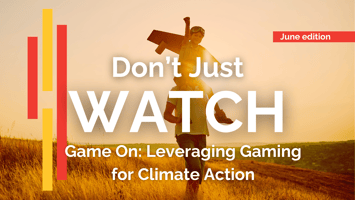Moving towards a more sustainable world requires significant strategic shifts and big projects. But it also requires changing the behavior of all of us — as consumers. Businesses will evolve faster if we make better (i.e., more sustainable) purchase choices.
Millions of dollars have been spent on efforts to raise awareness of issues, highlighting alternative paths of consumption. This approach is guided by the concept of behavioral nudges first widely introduced in the book Nudge. The basic idea is that significant behavioral changes can be promoted by small, often easy and inexpensive, “nudges”.
Researchers took a closer look at nudges and found the story to be more complicated. In the carrot case, the nudge did in fact result in more carrots being selected but did not in fact lead to more carrots being eaten, which was really the whole point.
The limitations of nudges in leading to behavioral changes was the subject of a recent article in the Wall Street Journal by researchers who have been studying them. People have known about the limitations of nudges for a while, and even Richard Thaler, the inventor of the idea, has cautioned, “Nudge is part of the solution to almost any problem, but is not the solution to any problem.” Nudges are helpful but not enough.
For those of us concerned about impact, this lesson is important. We have spent a ton of money and effort nudging. Too often though we’ve stopped there and the carrots are still on the plate uneaten. Our efforts have not been a waste, but it’s essential that we take the next step and work to build on the initial push. Real behavioral change won’t happen without it. The carrots will still be uneaten.
+Media connects the nudge — the initial awareness — with meaningful proximal action. Nudges, followed by relevant, contextual information delivered at the point of engagement, moves individuals to concrete action. From there, we measure consumer behavior to prove the effectiveness of the sustainable message.
There are good reasons from psychology that make this a more effective model of behavioral change. It’s well known that if people act in a certain way, their belief in the underlying idea of that action is strengthened. This is the famous idea of cognitive dissonance — actions strengthen beliefs. It’s a powerful virtuous cycle. If people tell you that they are going to vote, there is a higher chance that they will vote, and the self-belief in being a participating citizen strengthens when they get a certifying sticker “I voted”.
We believe that people want to do the right thing, that they care about impact and sustainability. Growing awareness is of course useful and essential. But for real lasting impact on consumer behavior, there must be some connection to measurable action. This is precisely what +Media is dedicated to — supporting consumers and brands on their sustainability journey through curated learning and action based opportunities.

